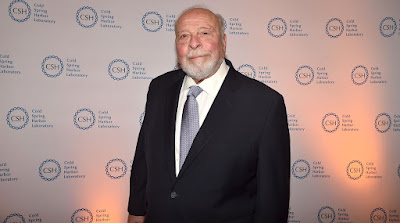The U.S. Attorney’s Office in Philadelphia released the below information:
PHILADELPHIA
– United States Attorney Jacqueline C. Romero announced that Terrell Ashby, aka
“Jason Brandon,” 26, of Williamsburg, Virginia, was sentenced today by United
States District Court Judge Gerald McHugh to 36 months’ imprisonment and three
years of supervised release, for engaging in a widespread “sextortion” scheme
targeting young women across the country. Ashby was also ordered to pay
$28,883.64 in restitution to the victims.
In April, the defendant pleaded guilty to two counts of
cyberstalking (one count resulting in serious bodily injury) and two counts of
extortion.
From at least February 2020 to December 2020, Ashby engaged in
an extensive sextortion scheme affecting more than 100 young female victims.
Targeting women based on their social media profiles, he systematically tricked
the victims into participating in nude video chats with him or sending him
explicit photos of themselves by promising to pay them $70,000. However,
instead of paying the victims, he surreptitiously took screenshots during the
nude video chats. Then he used the explicit images to extort the victims,
threating to disseminate the images publicly unless they paid him.
Many victims succumbed and paid Ashby anywhere from $25 to $50.
After receiving such extortion payments, he continued to haunt the victims –
sometimes for months. He created numerous shaming profiles on social media
using the victims’ identities and explicit photos. He stalked the victims,
repeatedly sending them threatening messages that their “expose” page had been
created and would be shared with their friends and contacts.
One of the victims who resided in the Eastern District of
Pennsylvania was so distraught that she overdosed on her prescription
medication and had to be rushed to the emergency room. Fortunately, she
recovered from the incident, but was hospitalized for a period of time. During
her hospitalization, Ashby continued to harass her, advertising her explicit
images to others using various social media accounts. Even months later, Ashby
continued his extortion of this victim.
“Terrell Ashby was absolutely relentless in terrorizing these
women online,” said U.S. Attorney Romero. “It’s hard to understand what
prompted, and then perpetuated, his criminal cruelty. At the end of the day,
though, we don’t really need to know why he did it. It’s more important to know
where he’s headed for doing so — and that’s federal prison, for the next
several years of his life. That’s a measure of justice for his many victims,
but it will never erase all the harm done.”
“We hope today's sentencing brings justice to the countless
victims this defendant harassed, violated, and extorted,” said Wayne A. Jacobs,
Special Agent in Charge of FBI Philadelphia. “The FBI and our partners at the
U.S. Attorney's Office encourage any victim of sextortion to report information
to law enforcement so we can continue to identify, investigate and prosecute
these crimes.”
The case was investigated by the Philadelphia FBI and is being prosecuted by Assistant United States Attorney Sarah Wolfe. The FBI and U.S. Attorney’s Office in the Eastern District of Virginia also provided assistance in the investigation.




































